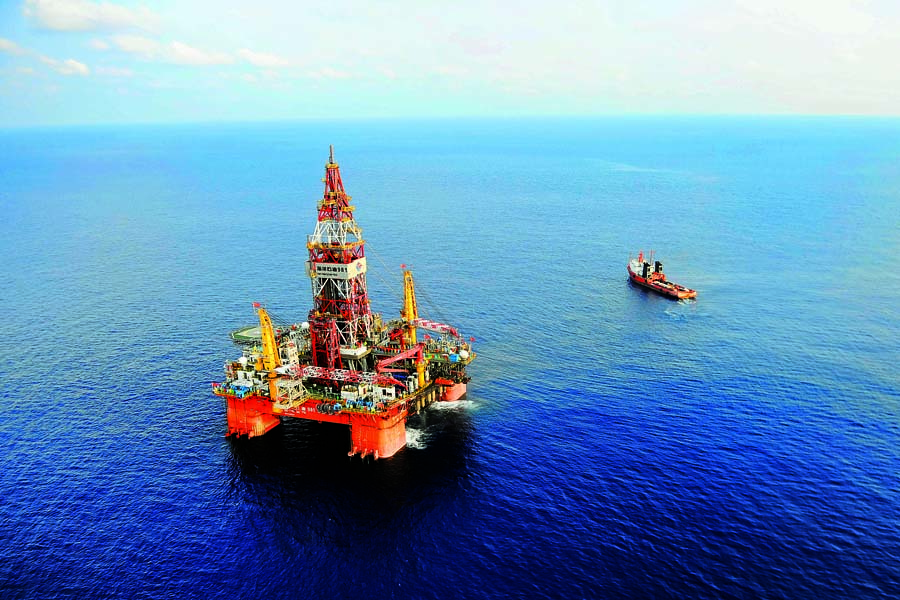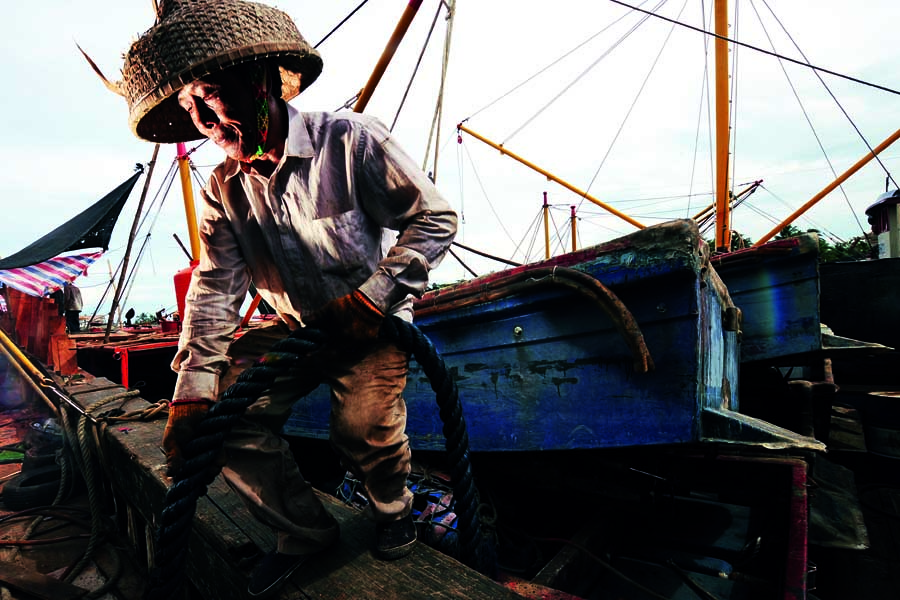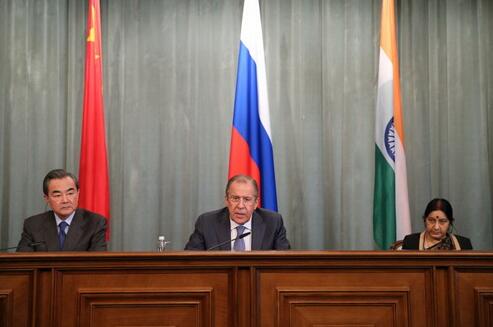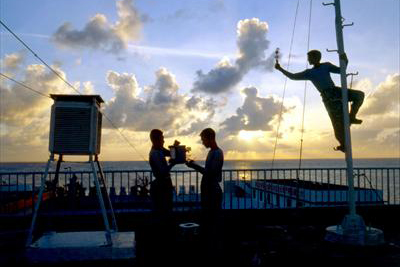Win-Win: China and India can Be Maritime Partners

A few days ago, several prominent maritime experts and scholars from China and India met in Delhi for a Track II Seminar on China-India maritime cooperation. Earlier on February 4, 2016, Chinese Assistant Foreign Minister Kong Xuanyou and India’s Joint Secretary of Disarmament and International Security Affairs of MEA, Amandeep Singh Gill, co-chaired the first round of dialogue on maritime cooperation between China and India.
These latest developments signal a new stage in China-India maritime dialogue and cooperation. It’s fitting for us to step up such cooperation as we have at least three commonalities.

May 10, 2016: Wen Jun, Counselor for Scientific and Technological Affairs at the Chinese Embassy in India, is invited to visit India’s National Institute of Ocean Technology (NIOT), for discussions to strengthen cooperation and communication in maritime science and technology .
First, both China and India were maritime powers for more than one thousand years before the Age of Sail. As pioneers of the ancient Silk Road, Tea Route and Spice Route, and major players of merchant shipping in the South China Sea, and Arabian sea, we were trail-blazers of economic globalization more than one thousand years ago. In the modern period, we both suffered from colonialism. The invasions and occupation on sea taught us a hard lesson: a country would be vulnerable without maritime defense.
Second, both China and India need to develop maritime economy. It’s not by coincidence that coastal areas are at the forefront of a country’s opening up and development, and are home to metropolis and advanced cities. As China and India work to develop bonded ports, free trade zones, coastal infrastructure and port economy, we have much to offer and learn from each other. In April this year, China participated in India Maritime Summit in Mumbai, and a Chinese company signed 25 million USD contract with Jawaharlal Nehru Port to provide cranes.
Third, both China and India are builders and contributors to the international maritime order. We took an active part in the UNCLOS negotiations, and were on the same page on most issues, such as the status of territorial sea administration, historical titles, archipelagic states, EEZ, Continental Shelf, etc. Today, we are working together to defend and improve the international maritime order to make it more fair and equitable, and prevent the abuse of arbitration under UNCLOS.

Boats sent out by the Jingpohu Ship arrive at the reef for replenishment. by Zha Chunming
Given the three commonalities, China and India have three major tasks on maritime cooperation.
First, we must build trust and dispel misgivings. China has no intention whatsoever to encircle India, either from land or sea. There’s simply no such thing as “string of pearls” in our dictionary. And the fact is, India as a big power cannot and will not be encircled by anyone. India is our partner, not rival, still less enemy. On India’s part, we believe India will continue to follow an independent foreign policy, and will not gang up with some other countries to form a “Cold-War” military alliance against China.
We see in India an important cooperation partner as China promotes the “Belt and Road initiative”, especially the 21st Century Maritime Silk Road. The English Philosopher Lord Francis Bacon wrote, “There be three things which make a nation great and prosperous; a fertile soil, busy workshops and easy conveyance of men and things from one place to another.” His words are even more relevant today.

Fishermen of Hainan Province at work.
Second, we must reflect and shape a new maritime outlook in the new era. The old maritime outlook was based on the Sea Power theory by Alfred Thayer Mahan. With a geo-security focus, it’s mainly about dominance, military use, big power interests and gunpowder diplomacy at sea. Now that time has changed, these concept are outdated. What we need to focus on is peaceful use of sea, economic cooperation and mutual benefit in this multi-polar world.

Fishermen live and work on the Xisha Islands. by Zha Chunming
Third, maritime disputes must be properly addressed through peaceful means by parties directly concerned. The Joint Communiqué of the 14th Meeting of the Foreign Ministers of Russian, India and China is a good example in this regard. It stated that “Russia, India and China are committed to maintaining a legal order for the seas and oceans based on the principles of international law, as reflected notably in the UN Convention on the Law of Sea (UNCLOS). All related disputes should be addressed through negotiations and agreements between the parties concerned. In this regard the Ministers called for full respect of all provisions of UNCLOS, as well as the Declaration on the Conduct of Parties in the South China Sea (DOC) and the Guidelines for the implementation of the DOC.” It reflects the shared position of the three countries, and can serve as a reference for addressing maritime disputes.

At the 14th Meeting of the Foreign Ministers of China, India and Russia, participants reach a consensus on maintaining order in the seas and oceans based on the principles of international law, with related disputes to be addressed through negotiations and agreements between parties concerned.
We are happy to note that India and Bangladesh resolved the maritime delimitation through international maritime tribunal in 2014. But it must be pointed out that first, India and Bangladesh agreed beforehand through bilateral negotiation to bring the matter to the tribunal, whereas the Philippines unilaterally forced arbitration without negotiating or consulting with China. Second, India and Bangladesh made no reservation statement upon ratifying UNCLOS, whereas China made a clear statement upon ratification, excluding compulsory measures. Third, the dispute between India and Bangladesh is mainly maritime delimitation, with land demarcation drawn in the Radcliff Line published in 1947, whereas the dispute between China and the Philippines involve territorial dispute, which is not even the mandate of UNCLOS. So that case is totally different from the arbitration unilaterally initiated by the Philippines on the South China Sea.

A national flag of China flying on the Dongmen Reef of the Nansha Islands. by Zha Chunming
When it comes to maritime governance, its connotation may differ according to the cultural background of different countries. For instance, the English word “governance” is from Latin and Greek, which originally means to rule. The similar Hindi word “Shaasen” has punishment in its original Sanskrit meaning. But the Chinese word “Zhili” includes such meanings as fitting, just and orderly governance. By drawing upon the philosophical wisdom of all our ancestors, we can better reflect on the issue today.

The Maritime Climate Observation Station on the Yongshu Reef of the Nansha Islands.
Maritime governance is based on some basic principles, such as the Five principles of Peaceful Coexistence that China and India jointly initiated, international law including the UNCLOS, the principle of occupation, effective jurisdiction, the land dominating the sea, respecting historical titles of relevant countries, peaceful settlement of disputes, direct negotiation by parties directly concerned, estoppel, and not abusing international arbitration mechanism, etc. Asian countries have gained some experience in this regard that reflect both the cultural tradition of our continent and the doctrines of independence, equality, openness and cooperation. We must stay on the right track and not allow ourselves to get distracted or astray.
China and India have much common ground on maritime issues. Going forward, as we work to enhance maritime capabilities, we can do so in a cooperative spirit and work together on many fronts. For instance, we can better align India’s “Sagar Mala” strategy and China’s 21st Century Maritime Silk Road. We can join hands in shaping a more fair and equitable international maritime order. We can work together in the North Pole and South Pole. We can have more maritime CBMs such as joint exercise and combating piracy. In February this year, China participated in India’s International Fleet Review. And in the face of serious drought in central and South India, we can do joint monsoon and marine research. A scientific research delegation from Chennai will soon visit China, and a delegation of meteorologists from Shanghai will visit Maharashtra to discuss weather forecast cooperation. With these exchanges, more cooperation will unfold.
China and India have every will and capability to step up maritime cooperation and build a maritime partnership. Together, we can turn the oceans in the region and the world into oceans of peace, harmony, cooperation and prosperity.
(The author is the Chargé d’Affaires of the Chinese embassy)
